We have
162 Readers online now
 In this section you can read and publish your scientific articles.
In this section you can read and publish your scientific articles.
Send your material to: This email address is being protected from spambots. You need JavaScript enabled to view it.
- Details
- Parent Category: Articles
- Category: Poultry Sciences articles
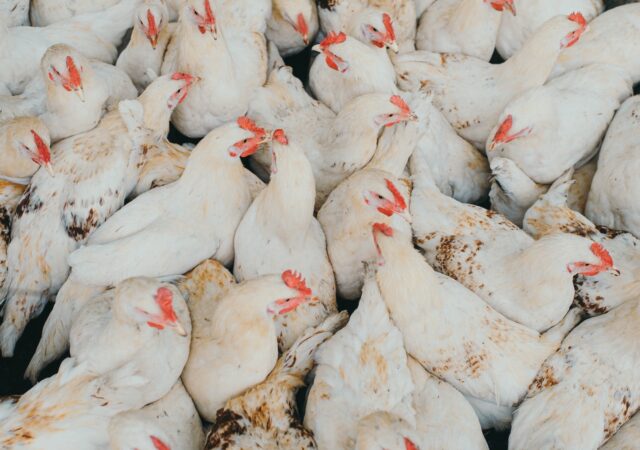 Diversified Pastured Poultry Models Can Reduce Risk of Highly Pathogenic Avian Influenza
Diversified Pastured Poultry Models Can Reduce Risk of Highly Pathogenic Avian Influenza
The Highly Pathogenic Avian Influenza (HPAI) outbreak has affected more than 52.4 million domesticated poultry in the United States in 2022, the U.S. Department of Agriculture Animal and Plant Health Inspection Service (USDA APHIS) reports. According to experts at the Johns Hopkins Center for a Livable Future shifting away from industrial models can help to prevent the spread of HPAI. And farmers are seeing that pasture-raised poultry models can help to keep their livestock healthy.
Read more: Diversified Pastured Poultry Models Can Reduce Risk of Highly Pathogenic Avian Influenza
- Details
- Parent Category: Articles
- Category: Poultry Sciences articles
 Ministry of Environment: The Kingdom achieves 100% self-sufficiency in table eggs
Ministry of Environment: The Kingdom achieves 100% self-sufficiency in table eggs
The Ministry of Environment, Water and Agriculture revealed that the poultry sector in the Kingdom has achieved high rates of self-sufficiency in table eggs, reaching 100%, witnessing a significant production surplus, contributing to supporting food security in the Kingdom.
Read more: Ministry of Environment: The Kingdom achieves 100% self-sufficiency in table eggs
- Details
- Parent Category: Articles
- Category: Poultry Sciences articles
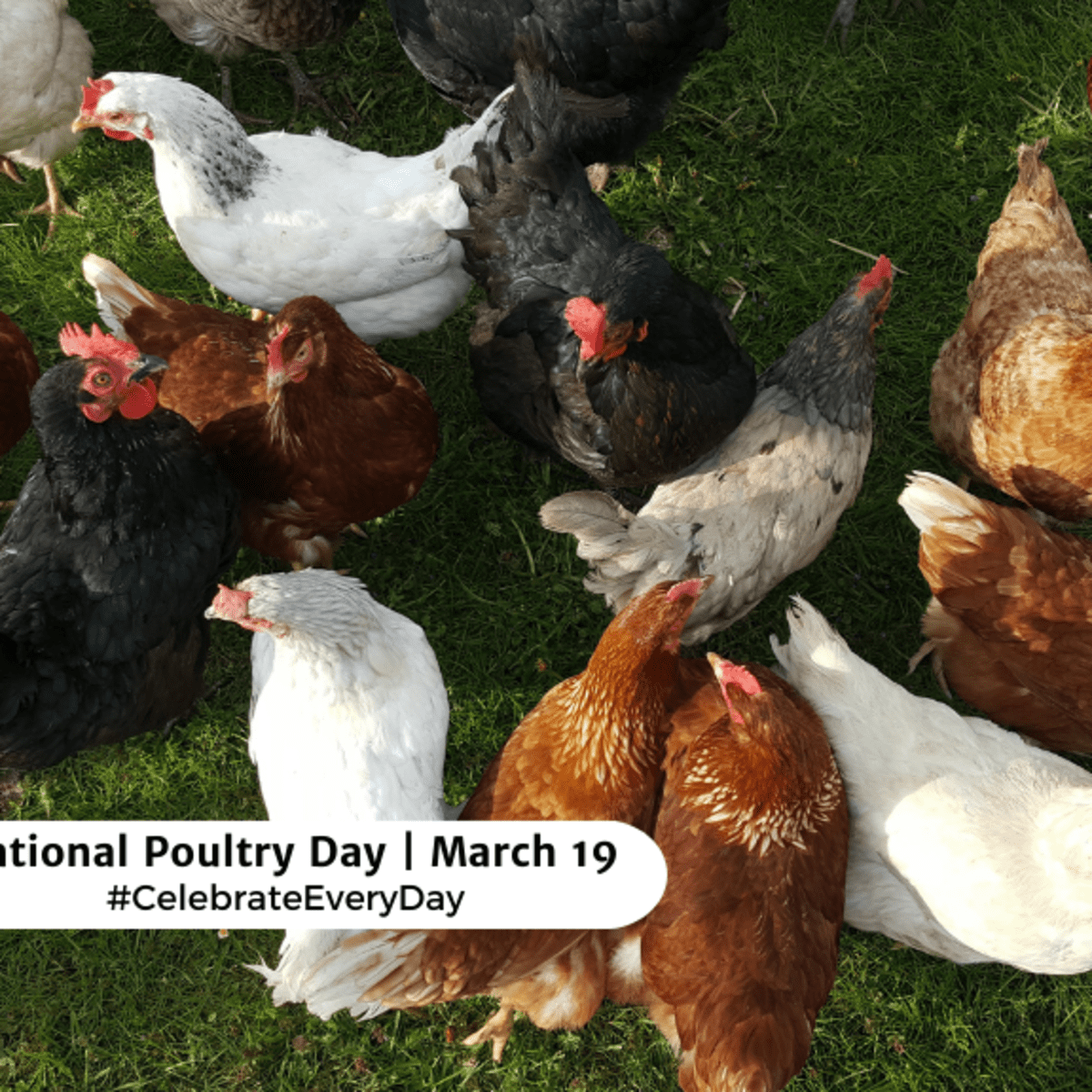 National Poultry Day
National Poultry Day
How did National Poultry Day first gain recognition in the United States? The origins of National Poultry Day are murky, but many link it to the early 20th century's booming poultry farming.
- Details
- Parent Category: Articles
- Category: Poultry Sciences articles
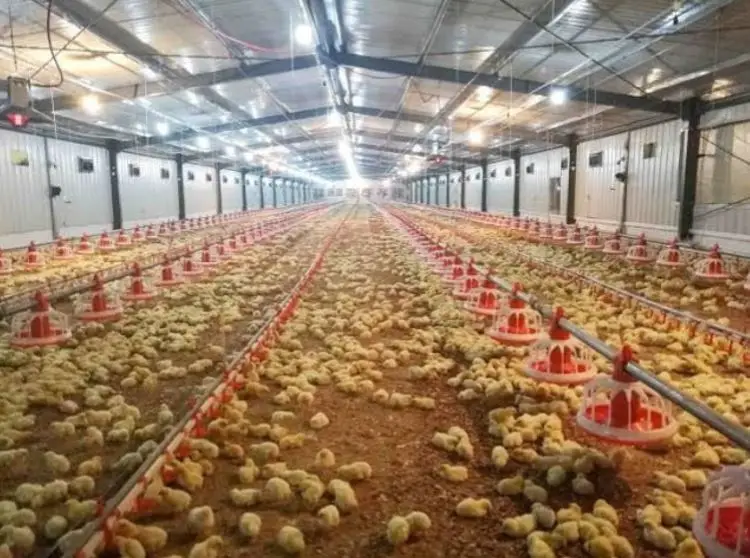 Contract Broiler Farming: Can Integration Evolve for Mutual Success?
Contract Broiler Farming: Can Integration Evolve for Mutual Success?
Contract poultry farming is well established in many countries, particularly in the United States, Brazil, India, and China.
Read more: Contract Broiler Farming: Can Integration Evolve for Mutual Success?
- Details
- Parent Category: Articles
- Category: Poultry Sciences articles
 Earth Fever: Understanding and Addressing Global Warming
Earth Fever: Understanding and Addressing Global Warming
Our planet is suffering from a fever. This isn't a metaphor; it's a stark reality. Global warming, or climate change, refers to the long-term increase in the Earth's average temperature due to the enhanced greenhouse effect caused by human activities. Essentially, we're trapping more of the sun's heat within our atmosphere.
Read more: Earth Fever: Understanding and Addressing Global Warming
- Details
- Parent Category: Articles
- Category: Poultry Sciences articles
 The Agricultural Development Fund approves loans worth more than 1.1 billion riyals
The Agricultural Development Fund approves loans worth more than 1.1 billion riyals
In its first meeting of the current fiscal year, chaired by the Minister of Environment, Water and Agriculture and Chairman of the Board of Directors, Abdulrahman bin Abdulmohsen Al-Fadley, the Board of Directors of the Agricultural Development Fund approved several development and investment loans worth more than 1.1 billion riyals, with investment costs approaching 2.2 billion riyals.
Read more: The Agricultural Development Fund approves loans worth more than 1.1 billion riyals.
- Details
- Parent Category: Articles
- Category: Poultry Sciences articles
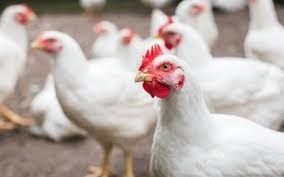 The Indian Broiler Industry: A Story of Integration, Trade, and Tradition
The Indian Broiler Industry: A Story of Integration, Trade, and Tradition
The Indian poultry industry is a vibrant fabric woven with threads of innovation, tradition, and resilience. At its core lies the broiler integration model, a marvel of vertical integration that has transformed chicken production. But the story doesn't end there. Beyond the integrators, the supply chain extends to bustling wet markets, where broiler traders and retailers bring chicken to millions of Indian households. This is a story of efficiency, challenges, and a delicate balance between tradition and modernity.
Read more: The Indian Broiler Industry: A Story of Integration, Trade, and Tradition
- Details
- Parent Category: Articles
- Category: Poultry Sciences articles
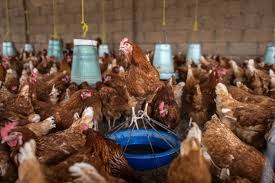 Growing consumption whets the global poultry industry's appetite for growth in the Gulf region
Growing consumption whets the global poultry industry's appetite for growth in the Gulf region
The global poultry industry continues to grow, amidst a range of changing economic, environmental, and technological factors. Most estimates predict that the global market will grow by 2.5 to 3% this year.
- Details
- Parent Category: Articles
- Category: Poultry Sciences articles
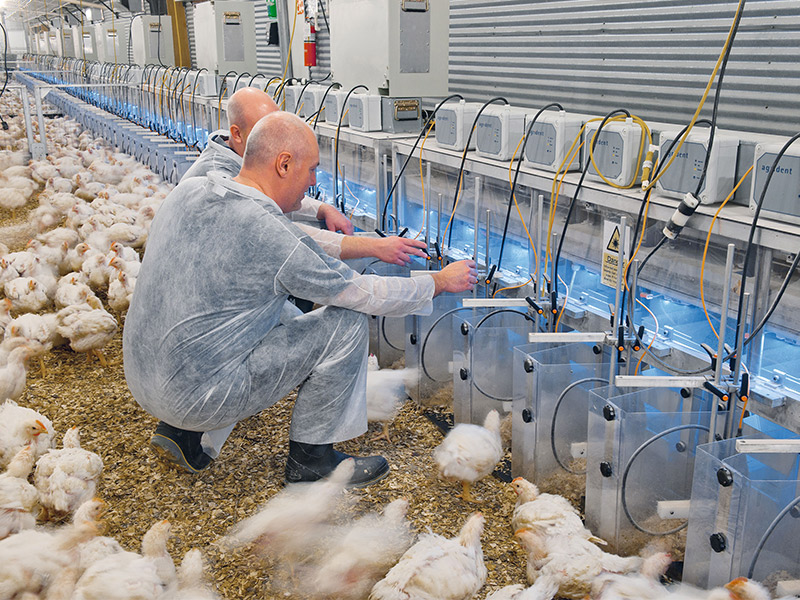 Aviagen® is committed to advancing the poultry industry through science-based research and practices that prioritize both the health of our flocks and the safety of the food supply
Aviagen® is committed to advancing the poultry industry through science-based research and practices that prioritize both the health of our flocks and the safety of the food supply
With recent discussions surrounding the potential for poultry vaccination against highly pathogenic avian influenza (HPAI), I want to take this opportunity to share our perspective on the matter, especially in light of two key articles that have addressed this issue in recent days.
- Details
- Parent Category: Articles
- Category: Poultry Sciences articles
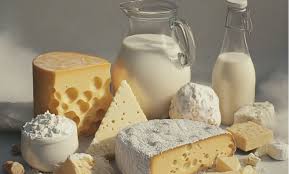 Abundance of dairy products boosts food security during Ramadan, with production exceeding 2.6 million tons
Abundance of dairy products boosts food security during Ramadan, with production exceeding 2.6 million tons
The Ministry of Environment, Water and Agriculture revealed that dairy products are experiencing a significant abundance in the markets, with production exceeding 2.6 million tons. This reflects their vital role in meeting consumer needs during the holy month of Ramadan.
- Details
- Parent Category: Articles
- Category: Poultry Sciences articles
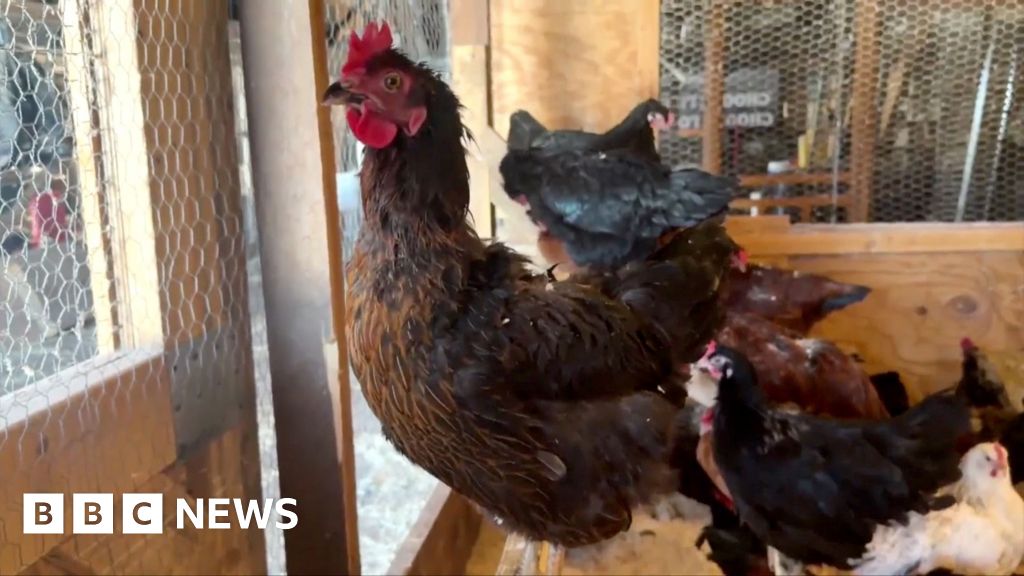 Rising egg prices in the US spark chicken rental trend
Rising egg prices in the US spark chicken rental trend
With egg prices soaring in the US, Christine and Brian Templeton of Rent The Chicken in Goffstown, New Hampshire, offer a unique solution—chicken rentals.
Read more: Rising egg prices in the US spark chicken rental trend
- Details
- Parent Category: Articles
- Category: Poultry Sciences articles
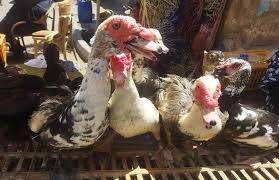 10% increase in duck prices during the current period... What are the reasons?
10% increase in duck prices during the current period... What are the reasons?
Duck prices have witnessed a 10% increase during the current period, while turkey prices have stabilized at the same levels as before during the Christmas period, according to what Abdel Aziz El-Sayed, head of the poultry division at the Chamber of Commerce, told Masrawy.
Read more: 10% increase in duck prices during the current period... What are the reasons?
- Details
- Parent Category: Articles
- Category: Poultry Sciences articles
 Strategic partnership between National Poultry and Halal Products Development to develop the Saudi poultry sector
Strategic partnership between National Poultry and Halal Products Development to develop the Saudi poultry sector
National Poultry, a global leader in food production, announced the signing of a strategic partnership with Halal Products Development, a Public Investment Fund company, during a prominent event held in Jeddah, in the presence of a group of prominent figures from the public and private sectors.
- Details
- Parent Category: Articles
- Category: Poultry Sciences articles
 How do geese fly over the Himalayas?
How do geese fly over the Himalayas?
Every winter, geese begin their seasonal journey from India to Central Asia, where they are forced to fly over the towering Himalayas, which are no less than seven thousand meters above sea level, in addition to the long distances they cover. What is the secret behind geese’s ability to fly to this height?
- Details
- Parent Category: Articles
- Category: Poultry Sciences articles
 Poultry meat enhances the Ramadan table with an abundance of one million tons, and a self-sufficiency rate of 72%
Poultry meat enhances the Ramadan table with an abundance of one million tons, and a self-sufficiency rate of 72%
The Ministry of Environment, Water and Agriculture confirmed that poultry meat is one of the main pillars on the tables of the holy month of Ramadan, as local production recorded more than one million tons, which reflects the abundance of the national product and its ability to meet local demand, in addition to achieving a surplus that enhances export capabilities to various countries of the world, and contributes to supporting food security in the Kingdom.
Read more: Poultry meat enhances the Ramadan table with an abundance of one million tons, and a...
- Details
- Parent Category: Articles
- Category: Poultry Sciences articles
 By: Prof. Dr. Mohammed Ali Maki Jassim Al-Rubaie - Iraq
By: Prof. Dr. Mohammed Ali Maki Jassim Al-Rubaie - Iraq
Food Additives
The effects of dietary supplements on the quality of frozen meat have been discussed previously; now, the focus is on meat additives. Phosphates have been used in poultry products to improve water retention, texture, color, flavor, as well as to control microbial contamination, growth, and to reduce freezing damage and protein denaturation. All treatments resulted in reduced drip loss and enhanced water-binding capabilities. Both sodium chloride and phosphates caused swelling due to electrostatic repulsion, allowing more water to be retained in the myofibril networks. It was concluded that treating chicken breasts with trisodium phosphate and sodium tripolyphosphate significantly reduced drip and cooking losses, as well as the formation of ice crystals and shrinkage from freezing of myofibrils.
- Details
- Parent Category: Articles
- Category: Poultry Sciences articles
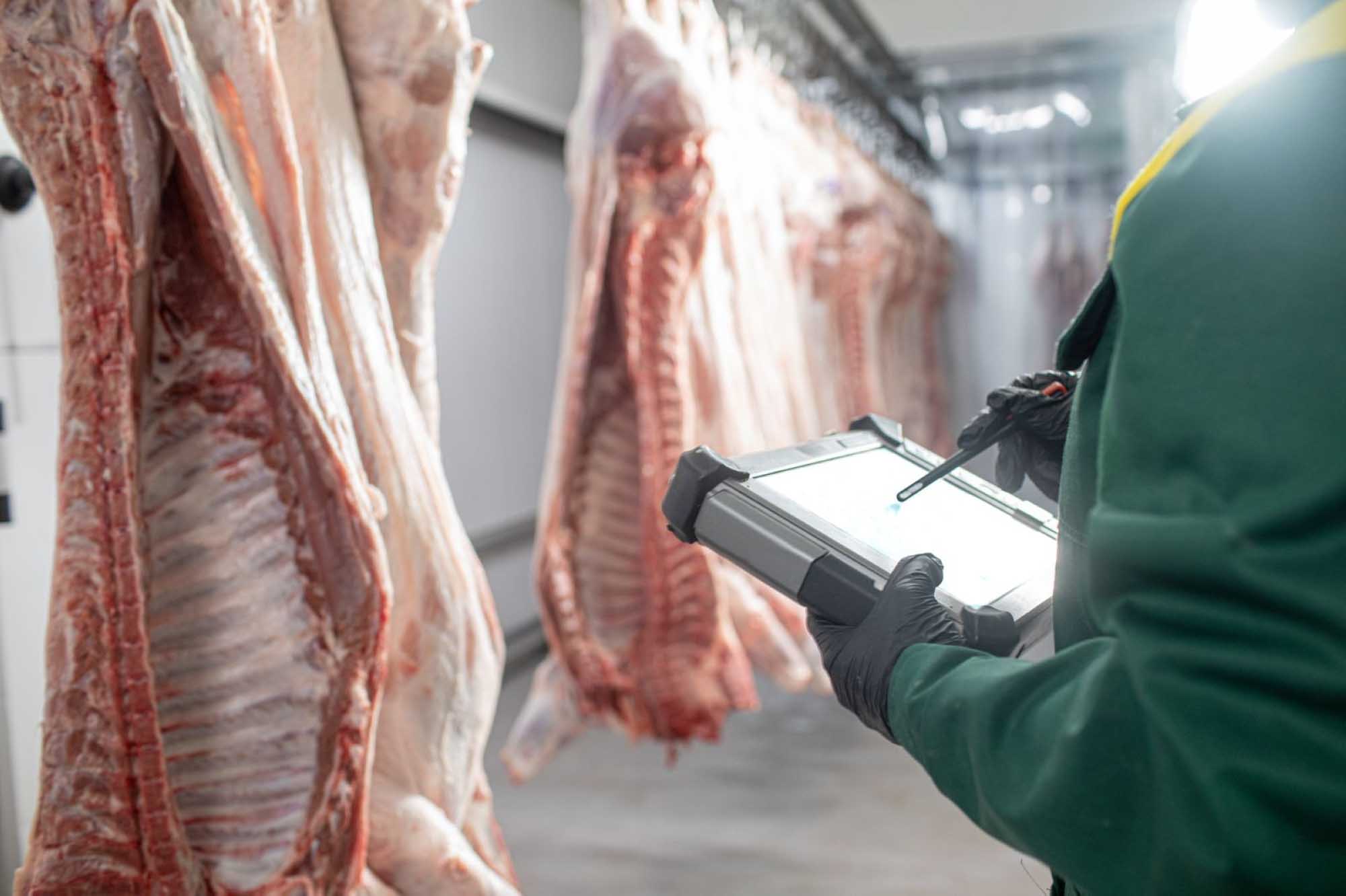 The Environment Ministry confirms the existence of an integrated system to ensure the safety and quality of meat in the Kingdom
The Environment Ministry confirms the existence of an integrated system to ensure the safety and quality of meat in the Kingdom
The Ministry of Environment, Water and Agriculture confirmed its continued efforts to ensure the quality and safety of meat provided to consumers by applying the highest health and preventive standards in slaughterhouses spread throughout the Kingdom, and that these procedures aim to preserve public health and enhance confidence in animal products.
- Details
- Parent Category: Articles
- Category: Poultry Sciences articles
 Saudi-Brazilian partnership to invest more than $150 million in the production and manufacturing of poultry products
Saudi-Brazilian partnership to invest more than $150 million in the production and manufacturing of poultry products
His Excellency the Minister of Environment, Water and Agriculture, Eng. Abdulrahman bin Abdulmohsen Al-Fadli, sponsored in his office at the ministry’s headquarters yesterday, in the presence of His Excellency the Chairman of the Board of Directors of the Food Development Company, Mr. Amr Al-Dabbagh, the signing of a cooperation and strategic partnership agreement between the Food Development Company, one of the leading Saudi companies in the field of food, and the Brazilian company, Fibra, specialized in the production and processing of poultry, to contribute to achieving self-sufficiency in poultry meat and its products, and enhancing food security in the Kingdom, in accordance with the goals of Vision 2030.
- Details
- Parent Category: Articles
- Category: Poultry Sciences articles
 Food Development Company announces its strategic partnership with SAP and Google Cloud
Food Development Company announces its strategic partnership with SAP and Google Cloud
Food Development Company announces its strategic partnership with SAP and Google Cloud, marking a significant milestone in its ongoing digital transformation journey and reinforcing its commitment to operational excellence, innovation and sustainable growth. The collaboration aims to enhance efficiencies, boost enterprise resource planning (ERP) capabilities and accelerate innovation through cloud-based solutions.
Read more: Food Development Company announces its strategic partnership with SAP and Google Cloud
Subcategories
Poultry Sciences articles Article Count: 100
Bovine, Ovine & Processing articles Article Count: 3
Editorials Article Count: 30
 All the editorials in one place. Read, comment and interact.
All the editorials in one place. Read, comment and interact.
Your ideas are valuable for us
(The editor)
Poultry-Mena Editorials Article Count: 25
 All the Poultry Middle East & North Africa's editorials in one place. Read, comment and interact.
All the Poultry Middle East & North Africa's editorials in one place. Read, comment and interact.
Your ideas are valuable for us
Lana Kalima Article Count: 1
 All the Poultry Middle East & North Africa's "We have our word" in one place. Read, comment and interact.
All the Poultry Middle East & North Africa's "We have our word" in one place. Read, comment and interact.
Your ideas are valuable for us
Bovine & Ovine - Editorials Article Count: 3
 All the Bovine and Ovine's editorials in one place. Read, comment and interact.
All the Bovine and Ovine's editorials in one place. Read, comment and interact.
Your ideas are valuable for us
Coming Shows المعارض في العالم |

















